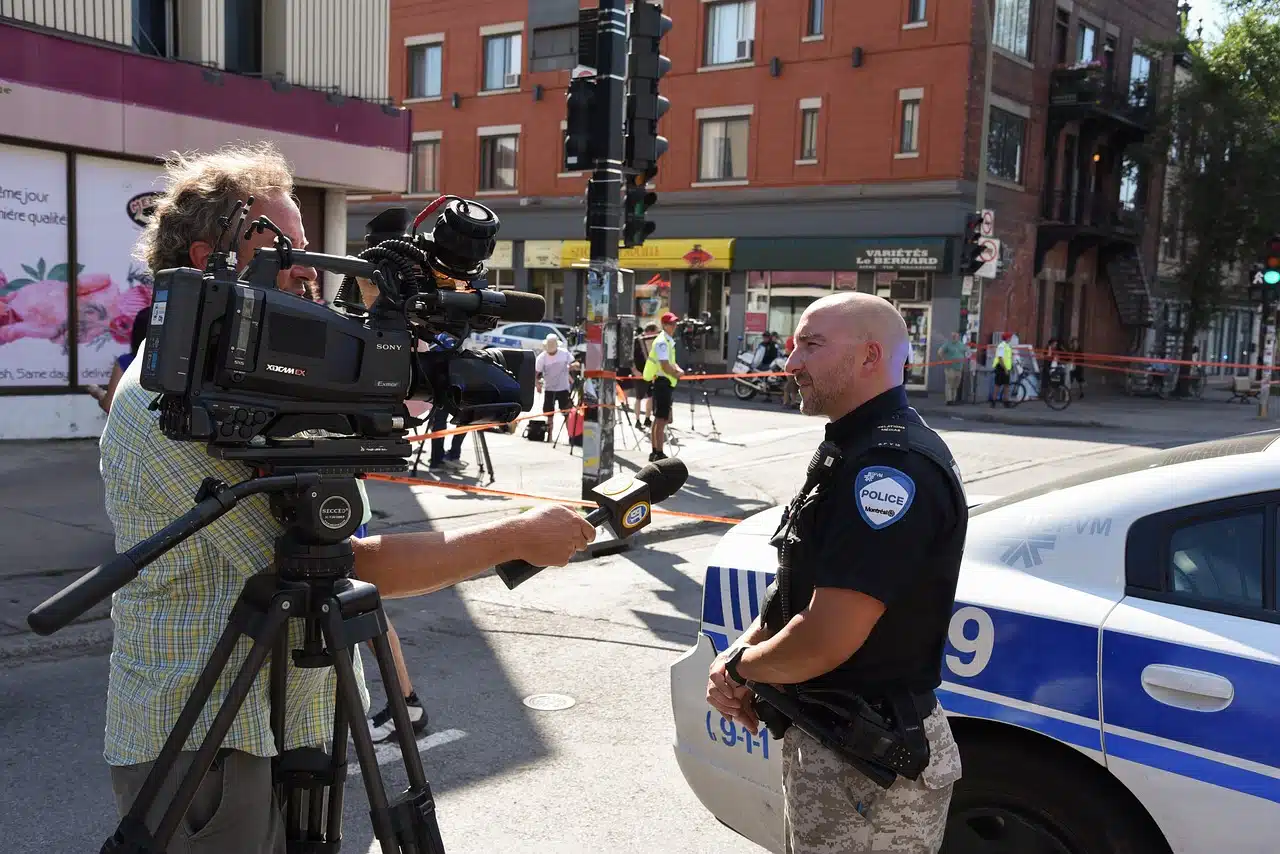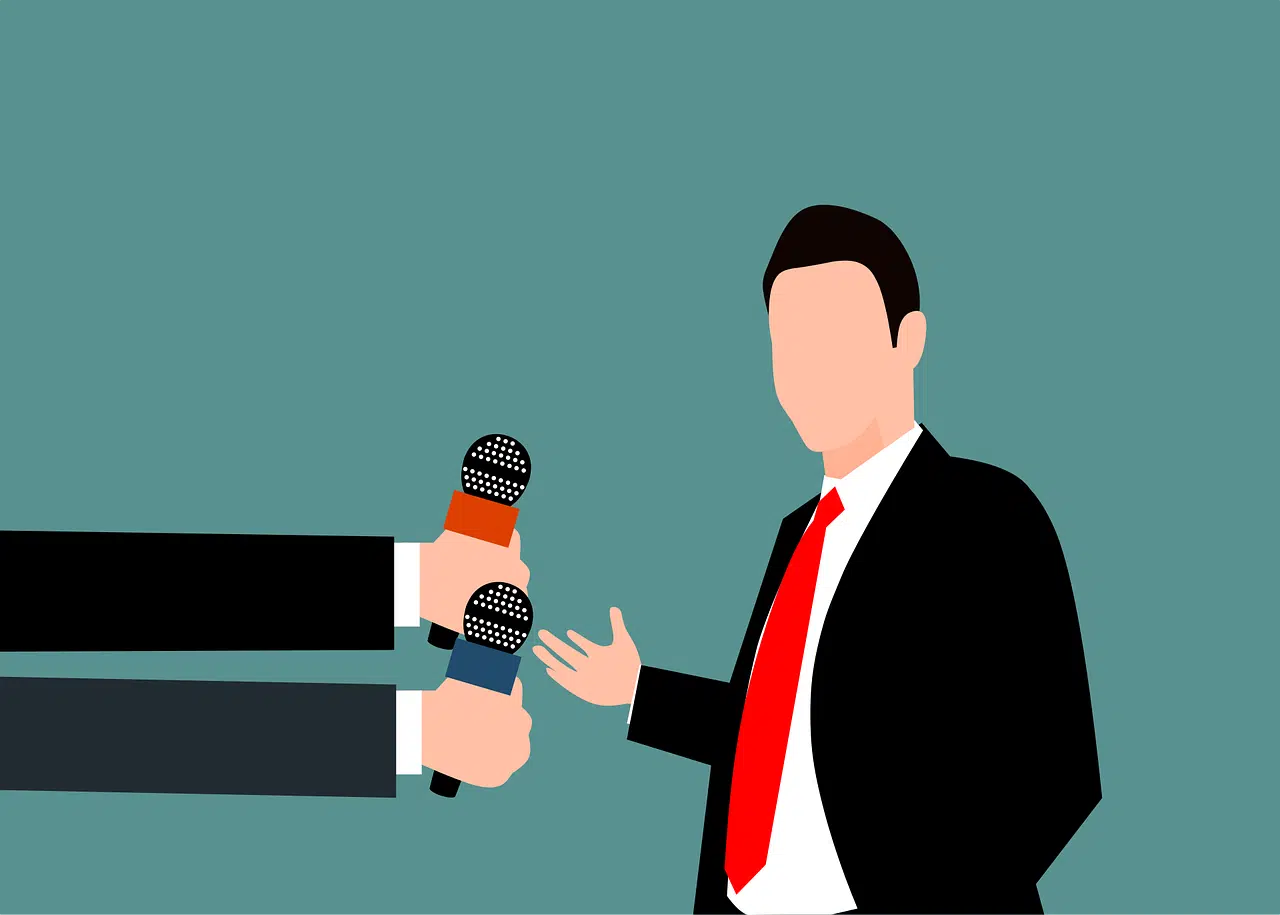
The informative interview is very important in journalism.
Interview is a term that is linked to the verb to interview (the action of developing a conversation with one or more people with the aim of talking about certain topics and for a specific purpose ).
Some examples of sentences where the concept appears: «In the next issue of the magazine we will publish an exclusive interview with Manu Ginóbili» , «Tomorrow I have a job interview at the center» , «After the interview with the doctor, we will decide which ones the steps to follow .
Types of interview
The interview can have a journalistic purpose and be developed to establish indirect communication between the interviewee and his or her audience. In this sense, the interview can be recorded with a recorder to be played in a radio program or as an audio file in a podcast; be recorded with a camcorder to capture it on video and broadcast it in a television program; be later published in a text thanks to a transcription; or be carried out through a video conference , to mention a few possibilities. Recording is not always essential since, sometimes, the recorded interview is not broadcast but rather a live interview is done.
Beyond the exchange of questions and answers, in journalism it is important to give context to the content. Therefore, if the interview becomes an article or a report , the journalist must transcend the testimony and refer to the circumstances surrounding the interviewee and the facts he or she tells.
Interviews can also be of a scientific type, the intention of which is to promote research on a topic related to science and which involves obtaining information about the work of an individual or group in order to influence the opinions and feelings that the community to whom it is addressed has on that topic.
In the social sciences , they use interviews to approach a certain people and learn about their customs and other issues related to their culture, which provides fundamental data to develop theories related to the life of said society, its behaviors, desires, beliefs. , etc. To do so, scientists usually blend in with the group, living with them and learning from community experience the data they need to study said people.

The applicant for a job position must take care of preparing for the interview and have possible answers to difficult questions planned.
The concept in the workplace
A job interview , on the other hand, allows an employer to learn everything they want to know about a potential employee in order to discern whether or not they meet the necessary requirements to fill a vacant position . In this type of interview, which is part of a worker selection process, questions are asked about work experience, expectations, availability and other matters inherent to accepting a job.
When selecting personnel , a company carries out several actions. Before recruitment, the job offer is made public so that interested parties can send their resume with their professional and academic background, references, etc.
The interview is agreed upon when the employer wishes to carry out the evaluation of an applicant. Leaving aside the particularities of each case, there are frequently asked questions in job interviews whose answers help in decision making. Hiring can be decided or ruled out depending on the development of the interview, which usually includes salary negotiation to agree on remuneration .

The tone of voice, facial expression and body language of the interviewee are some of the issues that are studied when analyzing the interview.
The clinical interview
It should be noted that the clinical interview is one that takes place between a medical professional and a person who plays the role of patient.
These communications are developed within the framework of the doctor's professional field and aim to exchange information and data that are useful to improve the patient's health condition.
A structured process
Interviews can be structured or unstructured, depending on the type of questions asked and their purpose .
A structured interview is absolutely standardized; That is to say, it is made up of a questionnaire with rigid questions that are posed to all interlocutors in an identical way and whose response is also structured. Some of the advantages of this type of interview are that it is easier to process the information (the answers obtained can be easily compared, useful for example to create statistics); that a very bold interviewer is not required (anyone could perform this task, regardless of whether or not they are a journalist); and that uniform information is collected (it is easy to eliminate data that does not contribute to the investigation or that does not provide useful information for the objectives of the interview).
They are usually used in the scientific field (census, surveys, etc.) and in media that do not have a journalism expert capable of skillfully operating in the field and developing interesting and independent questions for each of their interlocutors.
The unstructured interview
On the other hand, unstructured interviews allow you to get closer to the interlocutor, they are more flexible and, although there is also a line of questions that guides them, these are not rigid and allow the interviewer to ask questions about what they consider important or go deeper into certain topics. that are of interest to you or that you think may interest your interlocutors.
The advantages of this type of interview are that the questions are adapted to the interviewee in question and the same interview could be used for various situations and subjects. It also allows you to delve deeper into topics of particular interest and guide hypotheses towards areas of new exploration. Among its disadvantages is the difficulty in tabulating the data obtained, the requirement of a certain technical skill on the part of the interviewer and greater knowledge about the subject of the interview.
An unstructured interview can be in-depth (the interviewee is intended to express orally his or her perception of a certain event), focused (although it may be an in-depth interview, it is directed at a particular subject and in a specific situation. of which the individual has been the protagonist) or focused (group interview that allows approaching a specific event with greater ease of reflection on the topic in question).
Roles and goals
Two subjects intervene in an interview: the interviewer (the one who asks the questions and guides the conversation) and the interviewee (the one who answers and is the protagonist of said conversation ). Furthermore, in order for it to be carried out, there must be an interest in the communication exchange . For example, if a writer has just released a book and an interview is conducted, there will be a common interest for it to be carried out: the interviewer will have the intention of knowing from the author everything in reference to the work and the interviewee. You will want to publicize your book and promote your work through the medium that interviews you.
Before conducting an interview, it is necessary to set certain goals , which have to do with the functions that said interview will fulfill for the community that is going to receive it. Depending on the environment of said community, one or another questions may be asked.
When doing an interview it is very important to take into account certain guidelines , which if carried out will allow greater use of time with the interviewee.
- Begin the dialogue in a cordial manner , creating a bond with the person being questioned that helps the development of a fluid and interesting interview.
- Do not abandon the interviewee to his fate, but help him provide the answer to the question that has been asked.
- Allow the interlocutor to explain calmly , without cutting off communication and once finished, complement with what is considered important (point out dates or events, for example).
- Create questions that are not embarrassing for the interlocutor, but are related to the topic of interest.
- Be spontaneous and direct without resorting to arrogant or cunning methods .
